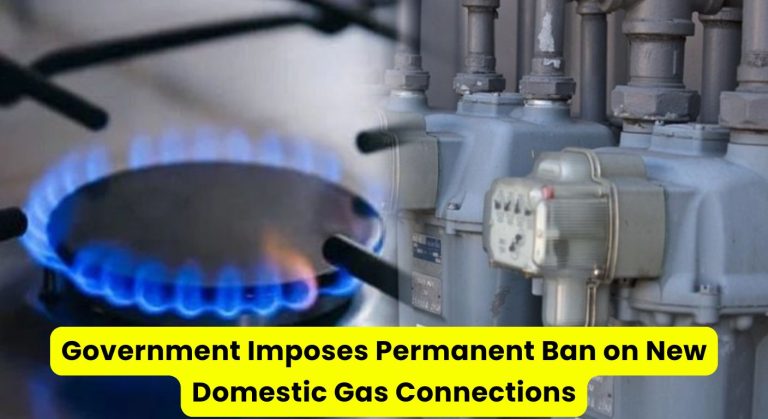How to Save Electricity at Home in Pakistan

Electricity has become one of the most expensive and scarce resources in Pakistan. With increasing demand, rising fuel costs, and frequent load-shedding, saving electricity at home is now more important than ever. By adopting smart habits and using energy-efficient appliances, households can reduce their bills, minimize power cuts, and also protect the environment. This article explains practical and fact-based ways to save electricity at home in Pakistan.
1. Understanding the Energy Crisis in Pakistan
Pakistan faces a serious energy shortage. According to the Pakistan Energy Yearbook, the country’s electricity demand increases by around 5–7% every year, while supply remains limited. Around 60% of electricity in Pakistan is generated from fossil fuels like oil and gas, which are costly and imported. This directly affects electricity bills.
Households consume nearly 48% of total electricity in Pakistan, which means if families save power, the overall demand-supply gap can be reduced significantly.
2. Switch to Energy-Efficient Appliances
One of the biggest reasons for high electricity bills is the use of old or inefficient appliances.
- LED Bulbs Instead of CFL or Incandescent Bulbs
LED bulbs consume 75% less electricity and last up to 25 times longer than traditional bulbs. Replacing all bulbs in a house with LEDs can cut lighting costs by half. - Inverter ACs and Refrigerators
Normal ACs and fridges consume 30–40% more electricity compared to inverter-based models. Inverter technology adjusts power usage according to need, reducing wastage. - Energy Star Appliances
Always look for the energy efficiency label before buying electronics. An energy-efficient fan, fridge, or washing machine may cost more initially but saves thousands of rupees annually.
3. Reduce Unnecessary Usage
Sometimes, saving electricity is about changing small daily habits.
- Turn Off Extra Lights: Many homes in Pakistan keep multiple lights switched on unnecessarily. Make it a rule: if you leave a room, switch off the light.
- Unplug Idle Devices: Chargers, TVs, and computers consume “standby power” even when not in use. Unplugging them can save 5–10% electricity monthly.
- Use Daylight: Open curtains and windows during the day. Natural sunlight not only saves power but is also healthy.
4. Smart Cooling and Heating
In Pakistan, air conditioners and heaters consume the largest share of electricity during summer and winter.
- Set AC at 26°C: Every degree below 26 increases electricity consumption by 6–8%.
- Use Ceiling Fans: Fans consume 75% less power than ACs. In moderate weather, fans should be the first choice.
- Seal Windows and Doors: Prevent cool or warm air from escaping. This reduces the load on ACs and heaters.
- Electric Heaters: Instead of high-power electric heaters, use gas or infrared heaters where possible, as they consume less energy.
5. Kitchen Energy Saving Tips
Kitchens in Pakistan often waste a lot of electricity due to old appliances and careless usage.
- Refrigerator Management: Keep fridge doors closed tightly. Don’t put hot food directly inside. Place the fridge in a cool corner away from sunlight.
- Microwave vs. Electric Oven: For reheating, microwaves consume less energy compared to electric ovens.
- Efficient Cooking: Cover pots while cooking to reduce cooking time and save gas and electricity.
6. Solar Energy – A Long-Term Solution
With the rise in electricity prices, many households in Pakistan are moving toward solar systems.
- Solar Panels: Though initial installation costs are high, solar panels reduce electricity bills by up to 80–90%.
- Net Metering: Through NEPRA’s net metering system, households can sell excess electricity back to the grid, lowering bills further.
- Government Incentives: The Pakistani government is also encouraging renewable energy adoption by reducing taxes on solar equipment.
7. Use Smart Technology
Modern smart devices help control electricity usage.
- Smart Plugs and Timers: These can automatically turn off appliances after a set time.
- Motion Sensor Lights: Ideal for hallways and porches; they switch on only when movement is detected.
- Smart Meters: Provide real-time electricity usage data, helping families identify wastage.
8. Community and Family Awareness
Saving electricity is not just an individual effort; it should be a family and community habit.
- Educate children about switching off lights and fans when leaving rooms.
- Share energy-saving tips with neighbors and relatives.
- Encourage collective initiatives like installing solar street lights in neighborhoods.
9. Benefits of Saving Electricity
Adopting energy-saving practices has several long-term benefits for Pakistani households:
- Lower Bills: A family can save up to 30–40% on monthly electricity bills.
- Less Load-Shedding: Reduced demand helps minimize blackouts.
- Environmental Protection: Lower electricity use means less reliance on fossil fuels, reducing pollution and climate change.
- Better Appliance Life: Efficient usage increases the life span of appliances.
Conclusion
Electricity is a valuable and costly resource in Pakistan. By making small lifestyle changes—like switching to energy-efficient appliances, managing air conditioning smartly, using solar power, and avoiding unnecessary usage—every household can contribute to saving electricity. These efforts not only reduce monthly bills but also help Pakistan overcome its energy crisis.






